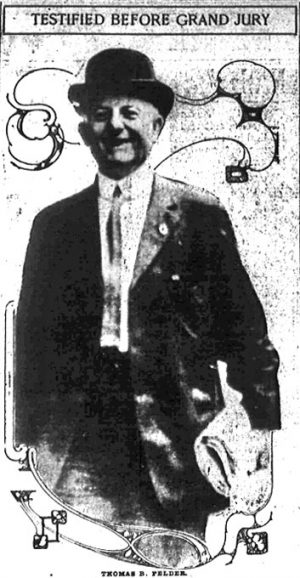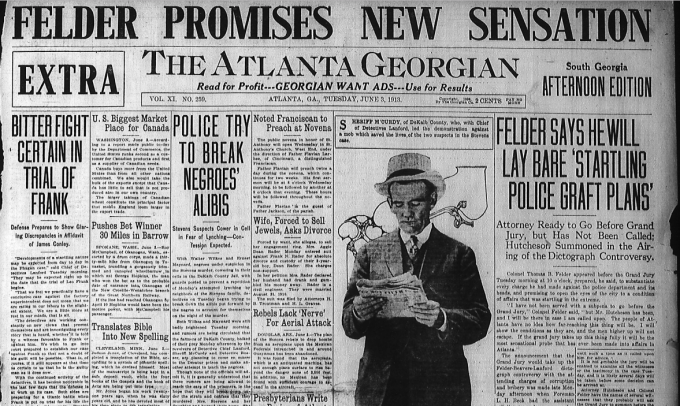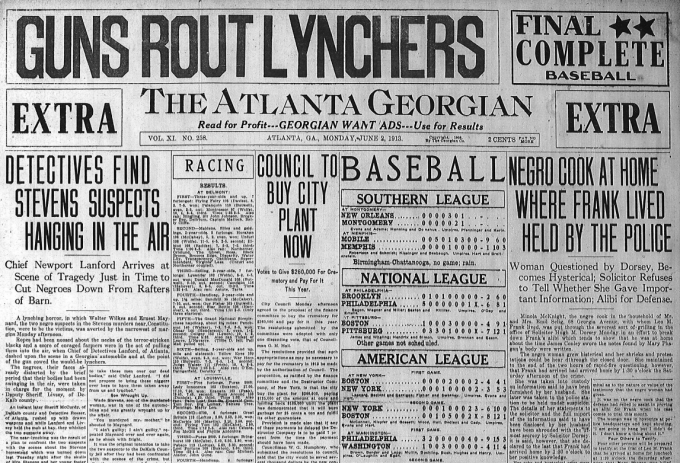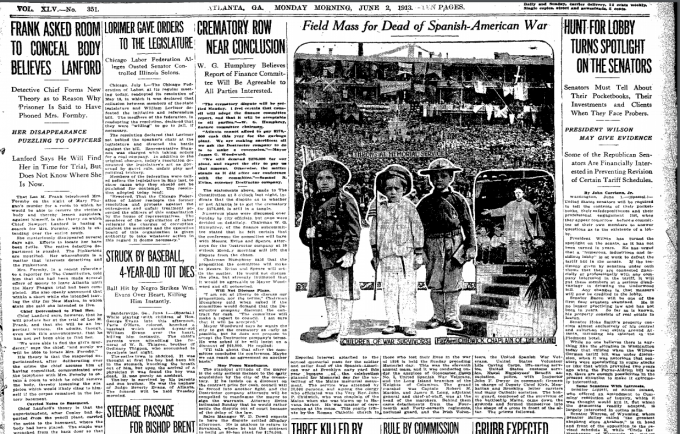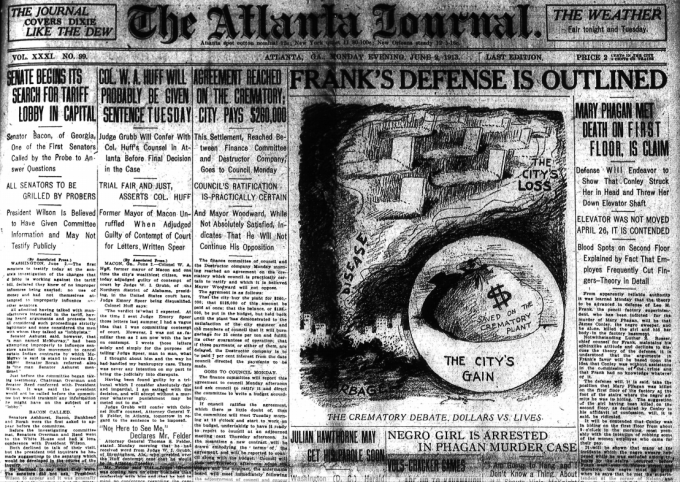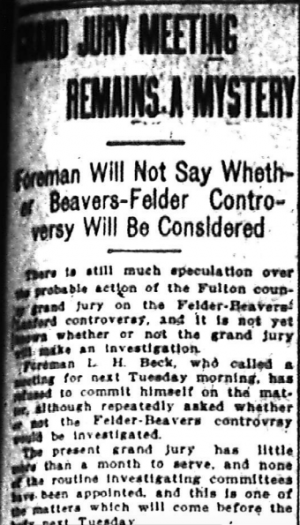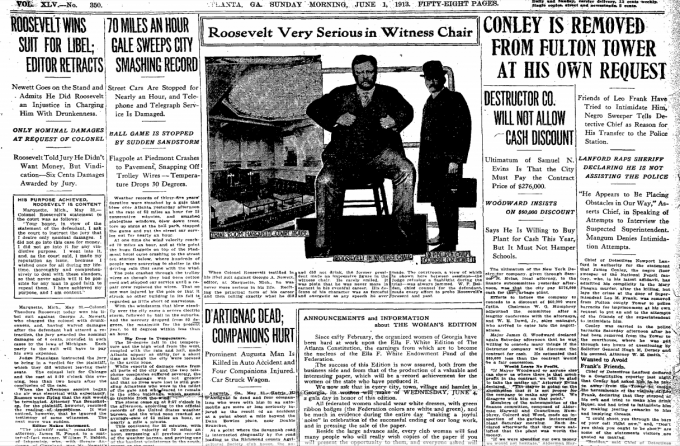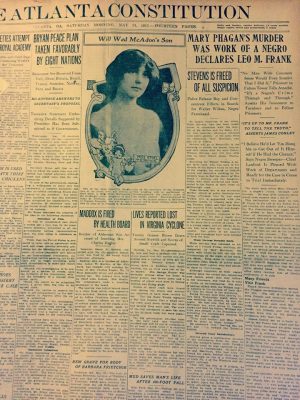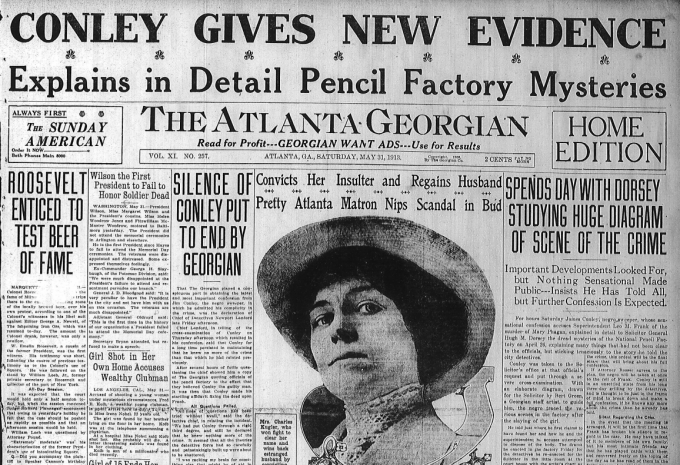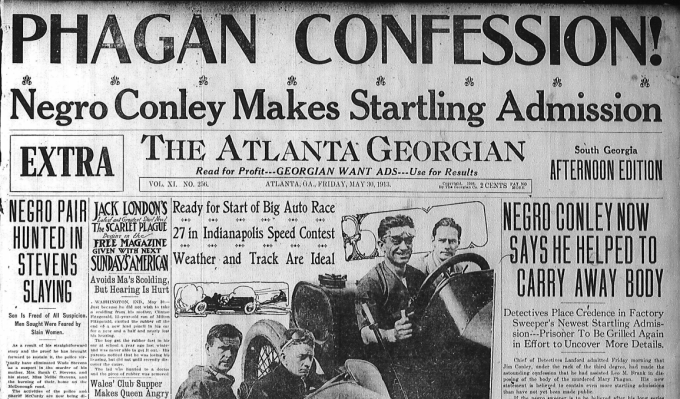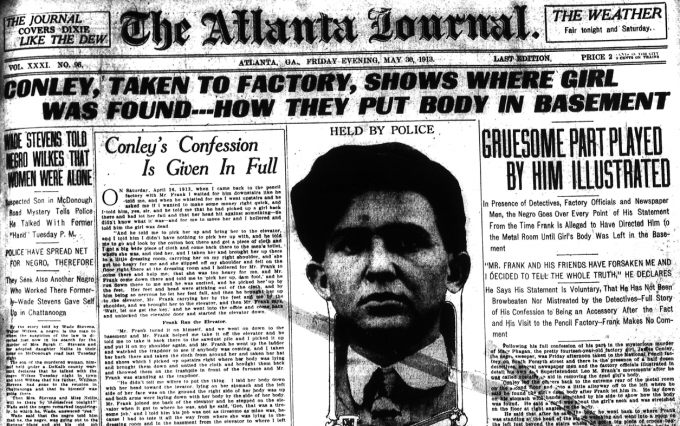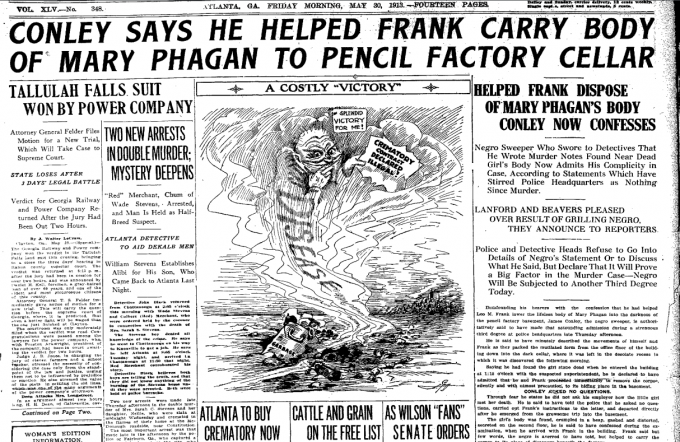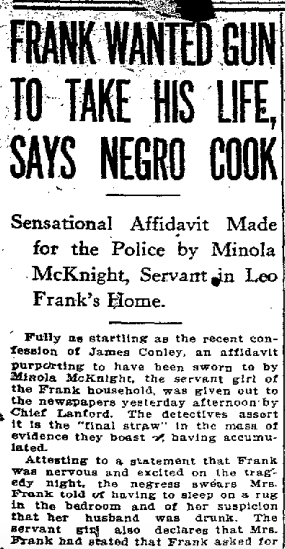 Another in our series of new transcriptions of contemporary articles on the Leo Frank case.
Another in our series of new transcriptions of contemporary articles on the Leo Frank case.
Atlanta Constitution
Thursday, June 5th, 1913
Sensational Affidavit Made for the Police by Minola McKnight, Servant in Leo Frank’s Home.
Fully as startling as the recent confession of James Conley, an affidavit purporting to have been sworn to by Minola McKnight, the servant girl of the Frank household, was given out to the newspapers yesterday afternoon by Chief Lanford. The detectives assert it is the “final straw” in the mass of evidence they boast of having accumulated.
Attesting to a statement that Frank was nervous and excited on the tragedy night, the negress swears Mrs. Frank told of having to sleep on a rug in the bedroom and of her suspicion that her husband was drunk. The servant girl also declares that Mrs. Frank had stated that Frank asked for a gun with which to kill himself, and that he asked, “Why could I be guilty of murder?”
The affidavit further states that Frank arrived home on the crime date about 1:30 o’clock in the afternoon, and, without eating dinner, left within less than ten minutes. He returned at 7 o’clock at night, the negress swears. Also, she declares that her name was attached to the document of her own free will and accord, and that she was not threatened or persuaded in any form.
Stands Sponsor for Woman.
She was released from prison on an agreement between her counsel, George Gordon, and Chief Lanford. Gordon offered to produce her at the trial, the detective chief declares, if she would be given freedom, and would stand sponsor for her presence. As long as she reports daily to police headquarters and shows no inclination to leave, Lanford says, she will not be molested. Otherwise, she will be returned to prison and held until the courts take up the case.
Attorney William M. Smith, counsel for James Conley, the negro sweeper, was asked Wednesday afternoon if he had formulated the line of defense to be presented by his client in case Conley was accused by Frank’s defense of the murder, as is the present outlook. He answered:
“Conley will need no defense. By the time he is accused, if he is, Frank will have been convicted of the crime.”
It was announced from Solicitor Dorsey’s office Wednesday that he Phagan case will go before the courts during the week of June 30 instead of the 23d, as has been predicted. No definite decision has been reached, however. It is understood that Dorsey will be ready for the prosecution at the later date, and that unless there are reasons for delay on the part of the defense, the case will proceed expeditiously. Continue Reading →



